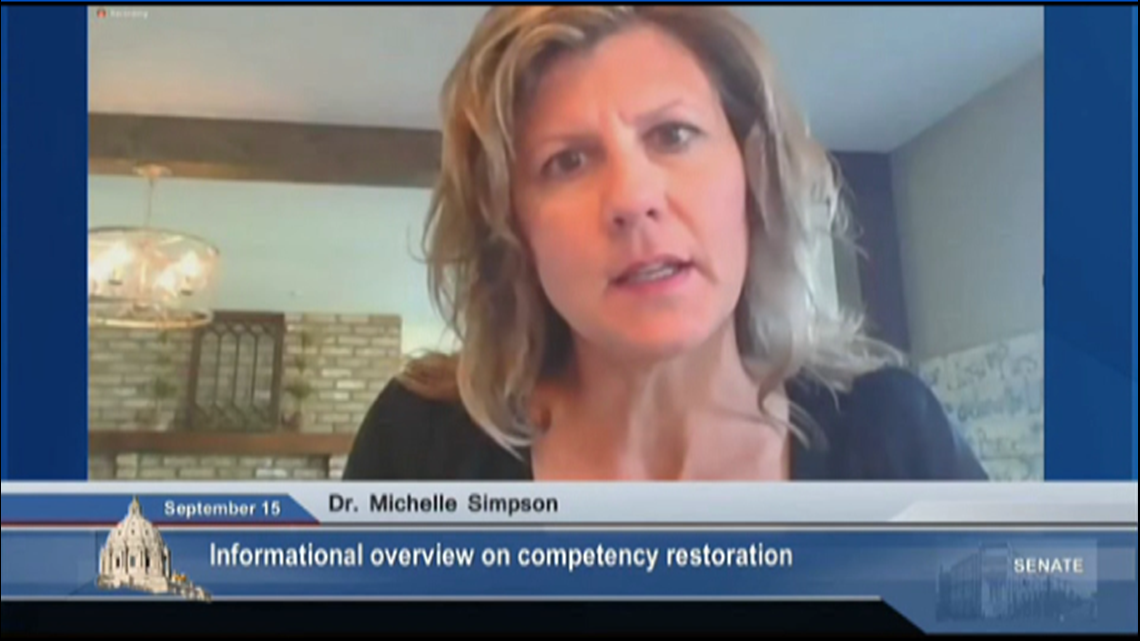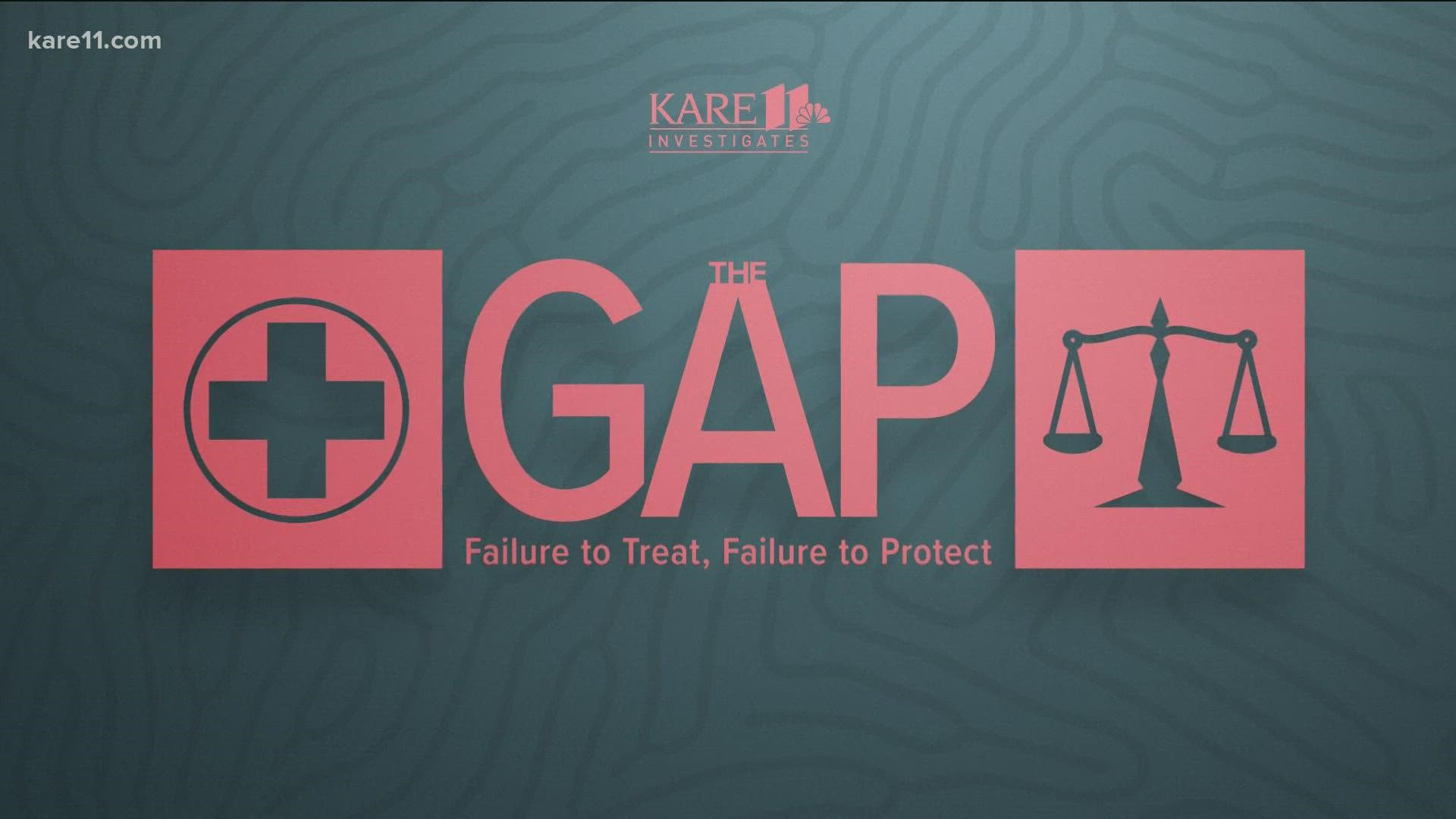ST PAUL, Minn. — The first legislative hearing held in response to KARE 11’s reporting on so-called gap cases included potential reforms on how to address the problems, but also criticism that those proposals fail to address public safety.
State Sen. Jim Abeler held the hearing Wednesday to discuss the thousands of cases where criminal defendants are deemed incompetent to stand trial, but fall through gaps in the state’s criminal justice and mental health systems.
Many of those defendants were left without treatment and supervision, and then went on to commit serious, preventable crimes, KARE 11 reported in the first part of its investigative series, “The Gap: Failure to Treat, Failure to Protect.” Among those cases: the mass shooting at an Allina clinic in Buffalo earlier this year.
Abeler called the hearing after being presented with KARE 11’s findings.
“It’s a real problem, and it’s a real mess,” said Abeler, who chairs the Senate Human Services Reform Finance and Policy Committee, where any legislative reforms on gap cases would need to pass through. “It really presents in my mind a public safety risk, but as well as concerns for individuals.”


A competency restoration task force created in 2019 to study gap cases released a report earlier this year, proposing solutions to the problem. The chair of that task force, Sue Abderholden, outlined some of the proposals, including diverting people suffering from mental illness from the criminal justice system.
“We can intervene early and get people on the right road to treatment and recovery,” said Abderholden, who is also the executive director of the National Alliance on Mental Illness Minnesota.
Abderholden said there should be better training for court officials and more funding for mental health treatment and housing.
“None of this, I’m going to be honest, is free,” Abderholden told the committee.
What was not in the task force’s proposed reforms drew criticism from Michelle Simpson, a mother whose daughter, Abigail, was murdered in February 2020.


The suspect in the case, Abigail’s boyfriend, is an example of a gap case. He had been found incompetent to stand trial in aggravated robbery and assault cases, but was released back into the community without having his competency restored. While his criminal cases were on hold, he beat Abigail to death.
“Abigail was a loving, smart, compassionate young woman, a sister and an aunt,” Simpson said. “There are actual victims from these decisions, these policy decisions that are being made.”
Simpson said the task force report had almost no acknowledgement of public safety.
“It’s actually astonishing and disappointing,” she said.
Simpson noted that there have been four murders in Minnesota since 2020 by people who had been found incompetent to stand trial but released back into the community, including her daughter.
Abigail’s death will be the subject of the next installment of KARE 11’s series on gap cases next Wednesday. On Thursday, the series will investigate another death involving someone struggling with severe mental illness but released to the community for months without treatment.
“This isn’t working,” Simpson said. “Abigail and others who have been murdered are evidence of that.”
Abeler said Wednesday’s hearing was the first of what is likely to be many more.
“I’m hoping to start a dialogue today,” he said. “I don’t want any more stories about Abigails in the world. It just should not be.”
MORE INVESTIGATIONS:

